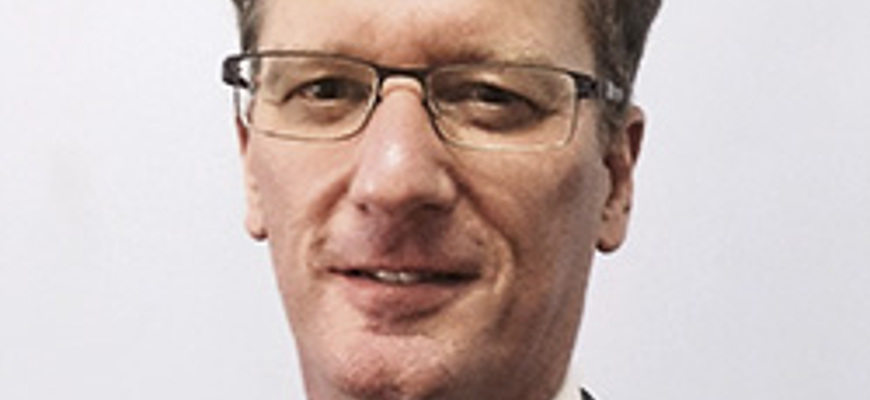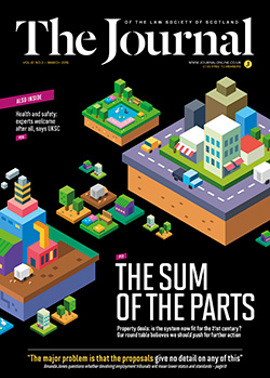In the rights place

Bored with corporate law? Wondering whether legal practice is really for you? Think you could, say, manage a refugee camp or negotiate with armed insurgents instead? It happened to Andrew MacGregor, whose job now comprises successive postings with OHCHR, the UN Human Rights Office, with whom he is currently monitoring human rights aspects of the transition to democracy in Myanmar (Burma).
An Aberdeen University graduate, after a couple of years in practice in the early 1990s MacGregor came to realise that corporate law, his initial ambition, wasn’t for him after all. “I did some travelling, with no particular objective, round Europe and then Central America, and it really opened my eyes. One day I wandered into the Glasgow office of Concern Worldwide and asked if they had any use for people like me. By the end of 1994, I was running a refugee camp on the Tanzania-Rwanda border.”
Had anything in his previous experience prepared him for that? “It was a total departure. It wasn’t like I opted consciously to go from corporate law to this kind of work. It was just giving myself the opportunity to find what I thought might be interesting. Something sort of resonated with me about it.
“Basically the skills I was able to bring were organisational skills and common sense, so I wasn’t immediately able to use what I had learned; but for sure in more recent years doing human rights work, my legal skills are still transferable. It’s not that lawyers necessarily make the best human rights officers, but certainly the skills you learn as a lawyer in Scotland, you can transfer into the work I do.”
A path revealed
Sensing an opportunity, MacGregor went back to university for a Masters in human rights, a move that paved the way for his next step. A chance meeting on further travels (“Something that life has taught me is that the world turns on small things”), led to him spending five years with the OSCE (Organisation for Security & Co-operation in Europe), under the UN framework for establishing democracy in Bosnia-Herzegovina after the Balkans conflict. Although he arrived about a year after the 1995 peace agreement, “It was still a pretty tense atmosphere, but it wasn’t as if people from the international community, though they could be pretty unpopular, were targets like in other situations I’ve been in, particularly thinking of Afghanistan.”
After progressing to become head of OSCE’s human rights division in Kosovo, MacGregor had a brief spell as the International Rescue Committee (IRC) regional protection co-ordinator in Afghanistan and Pakistan. Then in 2005 he joined the UN directly, and was first one in on the ground when the OHCHR reached agreement with the Nepalese Government to establish a human rights monitoring mission in a country then torn by Maoist insurgency. The mandate included engaging with insurgents as well as Government forces.
“This was largely the Government bowing to pressure from the diplomatic community and also from civil society in Nepal, that there should be an independent monitor to report on human rights violations, and abuses of international humanitarian law, not just by the Government, army and police but also the Maoists, because they have responsibilities even if they are non-state actors. That was a very important part of the mandate, and of course the Maoists wanted OHCHR there because it internationalised their struggle.”
That mission has brought him the greatest satisfaction to date. “I was working with some very able people and there was a set of ingredients where the UN was able to have a clear impact. I could go to a military barracks, knock on the door, and say, ‘Take me to your commanding officer,’ and that would work. I would like to think that did change behaviours, in terms of disappearances, torture and other serious violations, and I would say also with the Maoists. I firmly believe that we played quite a crucial role in bringing an end to the conflict and then enabling, providing space, political and democratic, that led to a comprehensive peace agreement and to constituent assembly elections.”
Once the agreement was signed, there was a natural progression to the political mission monitoring and supporting it. “From being a human rights officer I went to being the head of a region, which of course included human rights as one of the three pillars of the UN, along with peace and security, and development.” A third posting involved him leading a project to map allegations of serious human rights and humanitarian law abuses committed during the conflict. This should have paved the way for a truth and reconciliation commission, but that has yet to be achieved in a country that still has its share of troubles.
“It is easy to see that the aspirations of the Nepalese people have been somewhat frustrated,” MacGregor observes. “It’s tragic what has happened in a country that is struggling to get beyond the conflict and create a new Nepal which is more democratic, and then it has to deal with natural disasters” – chief among them the 2014 earthquakes, as well as annual flooding. Such events, only too common, “just add to the difficulties of countries that are coming out of conflict, or decades of dictatorship”.
What goes with the job
How difficult is it at the outset to win the trust of the local population? “We were doing work that was not just nice comfortable development work, it was getting to the core of human rights problems in the country, so yes it does take time, but towards the end of the conflict I had gained the trust of both sides, so was able at times to be that honest person between the two, helping things move to the desired conclusion. But when you’re setting up you can’t expect miracles. It takes time, engagement and understanding what you are doing, why you are there. And it can be more powerful when you have gained the trust of the right people.”
It is also political. “Coming from a human rights perspective, I think having an understanding of the political context is essential. We’re in the real world; norms and principles have to be implemented on the ground, so understanding the political context is fundamental. And equally it’s important for those coming from a political perspective to understand human rights and responsibilities. The two go hand in hand.”
Another UN political mission followed, in the very different environment of Afghanistan, where from 2011 to 2014 MacGregor was head of the western regional office in Herat.
“You often ask yourself, ‘How are we helping when there isn’t a political process in place?’ But I think a lot of the time the fact that we were there was itself important to show support for those democrats in Afghanistan, and the ordinary people who, like anywhere else, just want a peaceful life to raise their family. It’s a very tough country; a large part of my job was the security of staff and their families.”
Does MacGregor have much choice in where he is posted, and is he attracted in some way to difficult and dangerous places? “It’s not like the army. There can be an element of choice, but one goes where the situation demands. I think in this sort of area flexibility, adaptability are qualities one must bring to the work.
“I’m very sensible actually; I’m not someone who seeks danger at all. To an extent it comes with the work. When you are in a country that is emerging from conflict, or still in conflict, I think it’s more a case of being interested in the work and accepting that it sometimes brings an element of risk. I’ve been in positions where I’ve been responsible for others’ safety and security: I take these things very seriously and the risks that are inherent are calculated. We don’t do things or go places without thinking very carefully about them. Some people just can’t operate in that sort of environment, but I find that I can.”
Another country, another risk
MacGregor might have thought his next posting, as a human rights adviser in Sierra Leone, would pose less of a threat – only for ebola to break out. “The way it changed my life is nothing compared with how it affected Sierra Leoneans and people in Guinea and Liberia,” he relates. “In some ways it was similar to working in a conflict zone, because one’s ability to work there involves minimising the risks. What we learned was if you rigorously observe basic mitigation measures, actually the risk to people like me was low. People working on the front line were the courageous ones, particularly in the early stages when a lot of health workers were dying. It was absolutely tragic.”
Since last June, he has enjoyed the relative safety of Myanmar, based in Yangon as head of the UN Human Rights Office. “It’s in many ways a tough location to work in, but in terms of threats or risks the main ones are probably traffic incidents!”
That complex country is finally emerging from decades of military rule, with Aung San Suu Kyi’s National League of Democracy having swept the board in November’s election. The new Government takes office this month. MacGregor believes he will be there for some time yet. “I think it will be fascinating to see how Myanmar develops. I feel very fortunate to have been asked to come out here to lead the office.”
Does his job leave much space for a personal life? “I think it’s an important part of the work that you try to maintain a balance, and sometimes that’s not easy,” he replies.
“There are UN posts such as Afghanistan, that are termed ‘non-family duty stations’; many of the staff are separated from their families. So there is an element of sacrifice, and as I said in relation to security, it’s not for some people, but it’s part of the careers we have chosen. But the longer I’ve been in the job the more I’ve understood that at your peril do you give yourself 100% over to it. You’ve got to keep your own identity and not be defined by the work.”
He has no doubt that if he had his career over again, he would follow the same path. “When I decided to leave practice, I didn’t necessarily know what it would lead to, but it’s certainly one of the best decisions I’ve ever made. I’ve got friends in the profession; I could never have been as good a lawyer as some of them!”
In this issue
- Divorce in Scots law and Sharia law
- British Bill of Rights: radical reform or damp squib?
- Ten steps to winning new business
- The Keeper is coming
- Winding-up applications: when to refuse a first order
- Reading for pleasure
- Opinion: Marsha Scott
- Book reviews
- Profile: Susan Carter
- President's column
- Securities: no more sasine
- People on the move
- Back for more
- Funding your practice
- Equal but different?
- Making safety work
- A mediation story: the mediator's log
- Uber and above?
- Experts reassessed
- Land reform: part 10 takes shape
- Out of shape
- Requirement to register: meet PSC and SIOC
- Transgender: developing participation rules
- Scottish Solicitors Discipline Tribunal
- The road less travelled
- From the Brussels office
- Law reform roundup
- Doing the business
- EU benefit rights: a not so new deal?
- Fraud: raising your game
- Ask Ash
- In the rights place
- Using your secure digital signature
- Come to the conference






